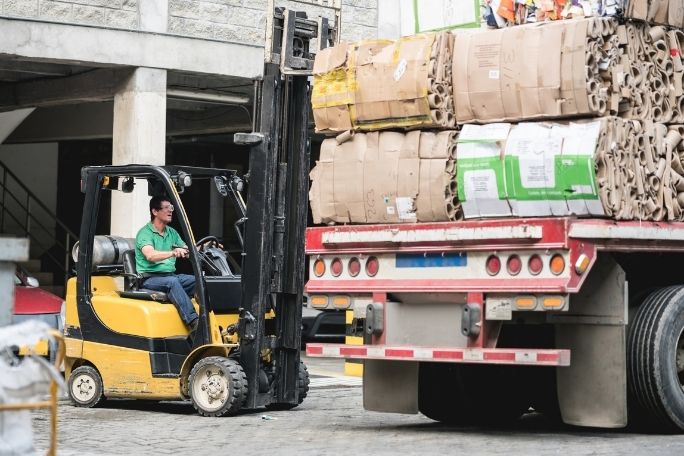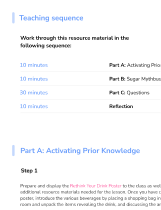Lesson summary
In this lesson, students will explore how forms of energy are incorporated into the process of separating recyclable and non-recyclable materials. They will watch two short clips that explain energy then apply their new understanding of energy by identifying the different forms used in a Materials Recovery Facility. Students will work in small groups to design their own way to use a form of energy to separate soft plastics from other recyclable materials.
Learning intentions:
Students will...
- be able to classify material into recyclable and non-recyclable categories
- know the forms of energy that separate materials at a Material Recovery Facility
- understand how to use the force of wind to separate soft plastic from mixed materials
Success criteria:
Students can...
- classify material into recyclable and non-recyclable categories
- identify the different types of energy involved in separating mixed materials
- work in a team to plan and design a processing machine that separates soft plastic from mixed waste using wind energy
Lesson guides and printables
Curriculum links
Select your curriculum from the options below.
Lesson details
Curriculum mapping
Australian content descriptions:
Year 8 Science:
- Energy appears in different forms, including movement (kinetic energy), heat and potential energy, and energy transformations and transfers cause change within systems (ACSSU155).
- Scientific knowledge has changed peoples’ understanding of the world and is refined as new evidence becomes available (ACSHE119).
- Solutions to contemporary issues that are found using science and technology, may impact on other areas of society and may involve ethical considerations (ACSHE120).
- People use science understanding and skills in their occupations and these have influenced the development of practices in areas of human activity (ACSHE121).
- Communicate ideas, findings and evidence based solutions to problems using scientific language, and representations, using digital technologies as appropriate (ACSIS133).
Syllabus outcomes: SC4-10PW, SC4-15LW, SC4-11PW, SC4-13ES, SC4-9WS
General capabilities: Literacy, Critical and Creative Thinking, Ethical Understanding
Cross-curriculum priority: Sustainability OI.8
Relevant parts of Year 8 Science achievement standards: Students identify different forms of energy and describe how energy transfers and transformations cause change in simple systems. Students identify questions that can be investigated scientifically. They use appropriate language and representations to communicate science ideas, methods and findings in a range of text types.
Unit of work: Visy Education – Secondary Science
Time required: 120 mins.
Level of teacher scaffolding: Medium – teachers will facilitate an innovative design process.
Resources required
- Student Worksheets (one copy per student)
- Device capable of presenting a video to the class
- Tools/materials to be incorporated into students’ soft plastic removal systems
- A range of different recyclable materials (listed in Part C of the Teacher Worksheet in more detail)
Skills
- Adaptability
- Collaboration
- Communication
- Creativity
- Critical thinking
- Global citizenship
- Initiative
- Problem solving
Additional info
This lesson has been developed in partnership with Visy. For over 70 years Visy has been committed to finding sustainable solutions for Australia and New Zealand’s recyclables and helping to reduce local landfills. Visy collects, receives and sorts paper, cardboard, glass, plastics, steel and aluminium from households, businesses and schools with the purpose of reusing these products in the re-manufacture of new packaging products.


Welcome back!
Don't have an account yet?
Log in with:
Create your free Cool.org account.
Many of our resources are free, with an option to upgrade to Cool+ for premium content.
Already have an account?
Sign up with:
By signing up you accept Cool.org's Terms and Conditions(Opens in new tab) and Privacy Policy(Opens in new tab).